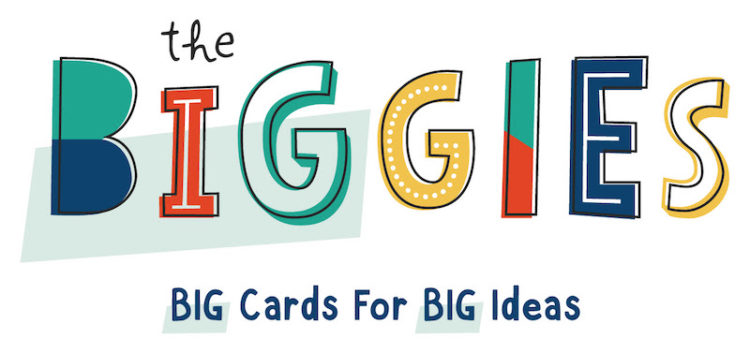The Impact of Losing My Brother to Suicide
Editor's Note
If you experience suicidal thoughts or have lost someone to suicide, the following post could be potentially triggering. You can contact the Crisis Text Line by texting “START” to 741741.
My brother Grant was to arrive in Denver on Wednesday, August 27th to visit me. But two days before he died by suicide.
Grant had been diagnosed with multiple sclerosis (MS) four months earlier. After hearing the news, I had gotten online to read about the disease. I learned that the risk of suicide was 10 times higher among people with MS than in the general population. I remember thinking to myself, this was something we needed to be aware of down the road, when perhaps Grant was more impacted physically. What I didn’t read was that the risk of suicide is highest, not for those more physically disabled, but after transition points such as diagnosis itself.
Grant was 28 and incredibly successful in his career as a chef. He was adored by his family. He had close friends. He had other friends, who weren’t as close. He had friends coming out of his ears. Never before had he threatened suicide, nor made an attempt. In fact, he seemed… well, happy. Needless to say, his death was a shock to all who knew him.
That was six years ago. I was pregnant with my second son at the time, and though I didn’t know it then, Grant’s suicide would propel me on a journey I wouldn’t have taken otherwise. Losing my brother did not just shatter my world. It shattered my worldview. I didn’t think people like Grant took their own lives. But as it turns out, even those who are charming, handsome, witty, successful, supported and loved are not immune from suicide.
In the years following Grant’s loss, I made it my mission to understand how and why life sometimes goes off the rails. Being a mom of young kids added a special urgency to this mission. Parents go to great lengths to protect their children and I wanted to protect my own. After much research, I landed on the importance of resilience in staving off suicide. Resilience is commonly understood as the ability “to bounce back” after disappointments and failures. Honestly, it was a bit deflating at first. After years of searching, resilience was all I could come up with? Bounce back? How does this bounce back happen? When does it happen? They say resilience is not something you either have or you don’t. And yet, it’s not like mindfulness either, where you do some meditating, practice being present and you can achieve varying degrees of it. How the heck do you get resilient?
Experts tell us resilience is a combination of tools and qualities—both innate and learned—that help you thrive in the face of adversity. Fine. Except what is the perfect cocktail of tools and qualities that will really make you resilient? A great article from the Positive Psychologists entitled, “30+ Tips for Building Resilience in Children” outlines many ways. Thirty ways, in fact. That’s a lot of ingredients to mix into your resilience cocktail.
I learned, however, that with this type of libation you don’t need all the ingredients. The resilience cocktail works with various different combinations. Resilience is, most basically, a tolerance for stress. Different people cope in different ways, so naturally there are many things that can make a person resilient. Some protective factors are, of course, more influential than others.
According to a June 2020 article in the New York Times, “What Makes Some People More Resilient Than Others“:
“The most significant determinant of resilience — noted in nearly every review or study of resilience in the last 50 years — is the quality of our close personal relationships, especially with parents and primary caregivers.”
However, as far as our individual qualities go, there seems to be no consensus amongst the experts which is most important for resilience. Optimism, emotional regulation and being active are biggies most certainly. As are empathy, an agreeable temperament and intelligence. The list goes on.
For me, however, there’s one individual trait that stands above all the rest. It’s not particularly more compelling than others. Rather its power lies in the fact that we all have it already. Merely because we’re alive. For some of us, it might be lurking under the surface. But it’s there, once you take a quick peek.
That protective quality is self-efficacy, the belief we have in our own abilities. It’s the inner knowledge that you will persevere, even when you don’t know how exactly you’re going to do it. It’s the realization that any mistake you’ve made in the past has made you wiser and more equipped to get over the next hurdle.
The reason we all have self-efficacy without having to work at it is because we’ve all scaled mountains in our lives. That’s what humans do. We get through. Think of your own life. Perhaps it wasn’t always pretty, but you’re here now. And every day, every hour, every minute, every second that you keep on keeping on is more proof you’ve got this. You’ve got this thing called life.
Now it’s just a matter of seeing your strength. Recognizing your know-how. Acknowledging all that you’ve overcome. You’ve made it this far. You’ve done the hard work already. All self-efficacy takes is admitting it. You’ve done it before and you can do it again. That short, simple affirmation sets you well on your way to being resilient.
A few years ago, it occurred to me that we could talk to our kids about many of the social emotional concepts needed for resilience, provided we did it in fun and interesting ways. I created The Biggies Conversation Cards, which do just that for elementary-aged children. Not only do they focus on topics that build resilience such as listening, risk-taking and gratitude, but the very act of discussing big topics with your children fosters communication skills and meaningfully connects participants—perfect resilience training. Each of the 25 cards centers on a different social emotional concept. They’re uniquely illustrated and include short exercises, fun facts, real world examples and quotes from well-known movies and beloved icons.
One concept that’s notably missing from the deck? Self-efficacy. And that’s because it’s already there in all of us. It’s just a matter of seeing it.
Please visit www.thebiggiescards.com to learn more. Together we can make meaning out of adversity.
* A portion of the proceeds are donated to The American Foundation for Suicide Prevention.
Getty image by Grandfailure


